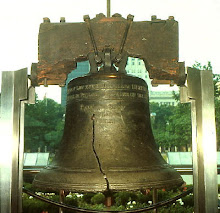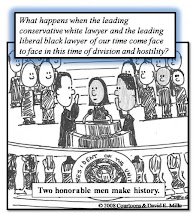Carmel Cafiero has always been a favorite reporter of mine for Channel 7. She has endured the test of time, having been on the air for better than 30 years I am guessing. I remember doing a feature with her 31 years ago on homeless and runaway children turning to prostitution to survive on the beaches of Fort Lauderdale. It won a prestigious Green Eyeshades Award for outstanding journalism. As a television reporter, she is second to none in her thorough and professional reporting.
As a part-time traffic judge for over ten years, I have always been troubled by that part of the adjudicative process where the court asks an officer whether he had ‘any problems in the citation.’ I want to know also if the citizen ticketed had any problems with the officers. Some are polite; too many stern. Courtesy and respect by both parties equally should be the rule.
Nevertheless now that 98% of all ticketed citizens hire lawyers to represent them, you almost never meet the clients. You do get though the officers’ representations of the traffic encounter on the back of the ticket, noted often by a drawing of a happy or frowning face.
Sadly, the rotating process of traffic attorneys subbing for one another in various courtrooms at the same time often means the lawyer never met the client whose case they are pleading out. So as a hearing officer, you hear one side of the story, the officer that is there, instead of the defendant you do not meet. Forget that you do not meet him, 95% of the time his lawyer has not either. Thus, there is no retort to the representations an officer makes when given an opportunity to offer input at sentencing after a change of plea. And that is the lawyer's fault, worrying more about the expediency of effectively covering his many dockets then hearing about the defenses of his client. That is just not fair to whoever may have hired him.
The simple truth is that all lawyers are entitled to review the ticket before entering a plea, which 98% of them do. What may not have been communicated effectively in Carmel Cafiero’s video is that the defense has an opportunity to see the officer’s notes prior to the commencement of the trial. If it gives him a clue about the officer's recollection, it might encourage him to one way or another try or plead out the case. Still, if you are the judge, when reviewing a citation you are exposed not to a neutral 'information' but a biased one-sided presentation, it can potentially taint and impair your neutrality. You have to distance yourself from the potential taint. Which is the point of Carmel's case.
After a change of plea, a jurist is certainly entitled to review the representations of an officer as to the defendant’s conduct at the time of the offense. But the jurist has to remain focused not on whether the cop and defendant got along, but on whether the citation was proper and whether the defendant committed the infraction.
If the worst thing anyone ever does in their life is get a traffic ticket, you will have lived a great life. But the officer’s notes on his recollection of what happened during the encounter have never belonged on the citation itself. They belong in a private journal, not the body of the citation. They should not be used by the judge to help decide the infraction because the driver’s behavior after the fact is not what got him pulled over in the first place.
‘Carmel on the Case’ dutifully went to Judge Tobin and shared the practice with the Chief Judge. He too has concluded it was inappropriate for a legal document to be peppered with happy or frowning faces and has directed that the practice end. Problem solved. Good for him, good for justice, and congratulations to one of Channel 7’s finest reporters for revealing the inequity.
One last note, since the ticket is available to lawyers or defendants for review prior to the start of a case, I do not think the officer’s drawings constitute grounds for dismissal, unless a review of the same gets the hearing officer to acknowledge he can no longer hear the case impartially. In any case, like Judge Tobin has ordered, facts only, not drawings, belong on a citation.
































No comments:
Post a Comment